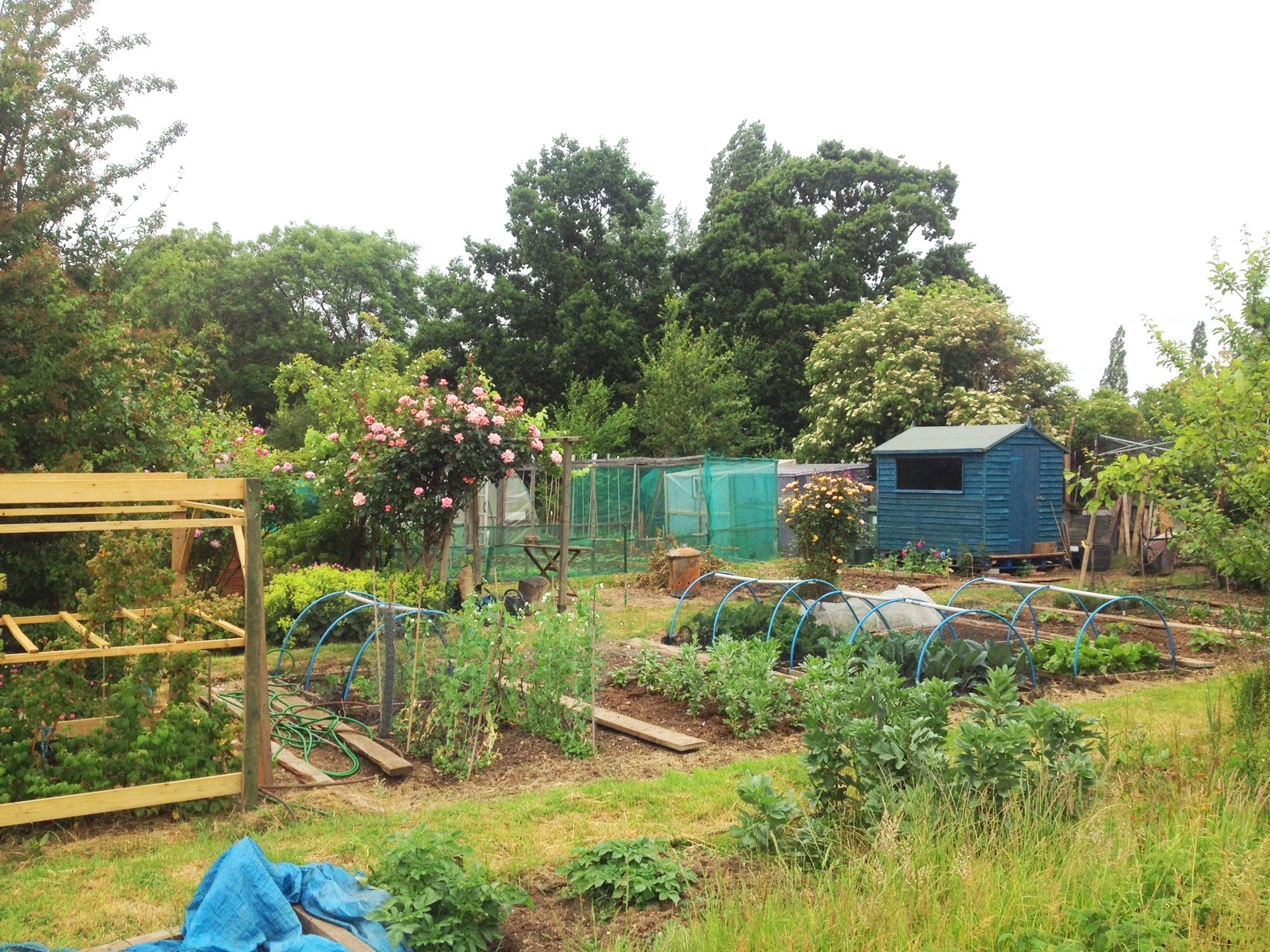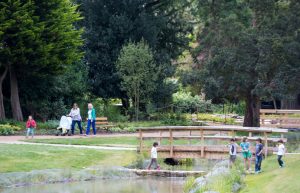Allotment gardening can offer an escape from city life, in a quiet spot in your local area.
A year-round activity, allotments bring great rewards – satisfaction from tasks well done; as well as a bounteous crop of fruit and vegetables every year for you and your family to enjoy. You really cannot beat growing your own produce.
Allotment owner of more than 12 years, John Sturrock has always enjoyed gardening but his house in West Ealing only has a small yard, so the opportunity to have his own allotment became an attractive proposition. His allotment is pictured above.
John said: “It’s a pleasure to be outside working in the earth and to enjoy peas, tomatoes, raspberries and other produce straight from the plant.
“I also wanted my children to know that food grows in the ground, not in packages on supermarket shelves.”
John currently grows plums, apples, cherries, strawberries, raspberries, beetroot, spinach, celeriac, kale, tomatoes, broad beans, French beans and peas in his plot.

Not only does it benefit your pockets, in savings on fruit and vegetables from the supermarket, but allotment owners also find many benefits to their health and wellbeing too:
Your corner of calm
One of the most notable and often mentioned benefits of allotment gardening is the positive effects of ‘green exercise’ on physical and mental health. Just 30 minutes of gardening burns around 150 calories and spending time outside in the fresh air and sunshine builds up your vitamin D levels and is a proven mood-booster.
Community oriented
Many people admit that they take on an allotment for the socialisation aspect and to meet new, like-minded people.
Grassroots education
There are fewer more rewarding experiences than teaching children the satisfaction of growing their own food. Sharing the gardening tasks with children actively engages them in learning, to support healthy living and sustainable development, and in a fun way.
Reduce your carbon footprint
Growing locally not only reduces your carbon footprint (often linked with driving to out-of-town supermarkets) but, most significantly, by buying less packaged food in supermarkets you will have less household waste to fill your bins with.
The details
Ealing Council, several charities and various independent allotment associations provide and manage 60 allotment sites across the borough. A standard plot is around 125 square metres and costs £75 for the year – with discounts being offered for the over 60s, full time students, and people receiving unemployment or disability allowance.
Getting started
Many of the council’s plots are in high demand, but those really keen to get started can apply to one of the following three sites that currently have available plots: Bixley Fields (Southall), Jubilee Road (Perivale), Lime Trees 1 & 2 (Northolt).
To apply for a plot, visit the directory of allotment sites and speak directly to the local contact listed to arrange a viewing. If there are no plots available, you will be added to the site’s waiting list and will be contacted when a plot becomes free.
More information
• For more on allotments in the borough, visit the council website.







